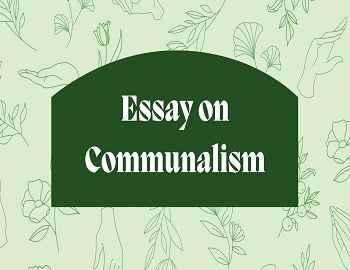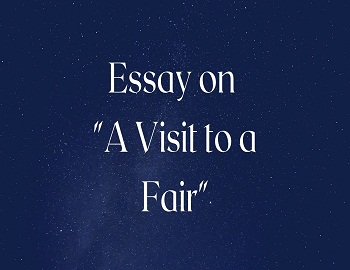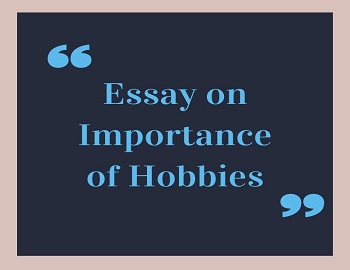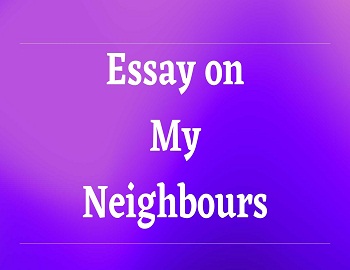Communalism:
History, they say, often repeats itself. But, strangely enough, people seldom learn from experience. This is quite true in respect of the chronic malady of communalism in our country. Every time a communal riot breaks out in some part of the country, it leaves behind a woeful tale of suffering, death, and destruction. The year 1984 witnessed some of the worst riots in Delhi, Kanpur, Patna, and several other parts of the country. The demolition of the Ram Janambhommi-Babri Masjid structure on December 6, 1992, led to widespread riots in several states. As if these were not enough, March 1993 witnessed hundreds of deaths in Bombay caused by bomb blasts. Other communal riots include Godhra Riots, 2002; Assam Communal violence, 2012; Muzaffarnagar violence, 2013, etc. What happens after each orgy of communal violence has become a ritualized pattern. Commissions of inquiry are appointed, meetings are held, and resolutions, condemning communalism and endorsing the need for communal harmony and national integration are passed. Before the ink of these resolutions dries up, the communal elements are again at their usual game. Even as the public show of anguish and concern goes on, the communal frenzy and riots keep on occurring in one part of the country or the other.
Why has the monster of communalism made such a stronghold in this great country of the Buddha, Guru Nanak, and Mahatma Gandhi? The virus of communalism was first injected by the British rulers to pursue their policy of “divide and rule”. They started patronizing some communities so that they could prevent the surging masses of India from coming under one leadership. The birth of the Muslim League, and subsequently the partition of the country, were, no doubt, a direct outcome of this policy of “divide and rule”.
But if communalism is persisting even after the departure of the British, the formation of Pakistan, and, more importantly, Seventy-Five years after independence, there are surely some factors that sustain it. The worst of them is the use of politics. As India is a democracy and as politicians depend on the votes of the people, they try to make appeals in the name of caste, religion, and region. Now religion is such a subject as can easily fool innocent and illiterate people. So all that selfish politicians have to do is to give the slogan “Religion is in danger”. In addition, there are other factors, too. Fanatics and priests try to maintain their hold on their communities by inciting them in the name of religion. Widespread poverty, ignorance, illiteracy, and lack of general awakening make the people fall easy prey to communal appeals. The result is violence and bloodshed, arson and looting on a large scale.
The need to curb communalism by all possible means cannot, therefore, be over-emphasized. What is needed first of all, and on a long-term basis, is a mass awakening in favor of equi-tolerance. Our Constitution stresses secularism, but we find that it is seldom practiced. While giving tickets to candidates, political parties choose a candidate from a constituency on the basis of his religion. If, for example, a constituency has a majority of Muslims, the candidates put up by all political parties will invariably be Muslims. This practice has to be stopped. In addition, anyone exploiting religion for personal gains should be discouraged and exposed. Right from their school days, people should be taught to treat and respect t all religions are equal.
The root cause of communalism is the mixing of religion and politics. Politicians know that religion has a great appeal to the people. So in order to build up their own vote banks, they appeal to the religious sentiments of the people and warn them of the danger to their religion from the followers of another religion. This vicious propaganda should be stopped. Our constitution clearly says that no one should make a religious appeal and use places of worship for political purposes. But the law in this respect is seldom honored in politics. Even the parties which claim to be secularists, actually make religion appeal and secure the service of some religious leaders, swami, and maulvis!
Finally, the people responsible for communal preaching and violence should be sternly dealt with. Because of political protection, rioters, looters, and arsonists go scot-free after indulging in large-scale violence and arson. But if they have the fear of the law, they will not indulge in such monstrous acts. It is really strange, though true, that no rioter ever gets punished, even when he is clearly identified. The reason is that he manages to find some political godfather. This practice of protecting anti-social elements has to be changed. A criminal is a criminal, and anyone who tries to protect him is no less so. In fact, the political and religious godfathers of communal elements must be fully exposed and even punished. Until this happens, communalism will continue to haunt the country.
There is thus an urgent need to tackle the problem of communalism from several angles. While there should be a campaign for secularism on a long-term basis, the Government must remove the genuine grievances of all sections of the society, regardless of their community. But it must come with a firm hand to deal with law-breakers who exploit religious feelings and present themselves as religious leaders. Only then can there be hope that communalism will gradually disappear from the country and there will be amity, friendship, and brotherhood between different communities.









Comments (No)